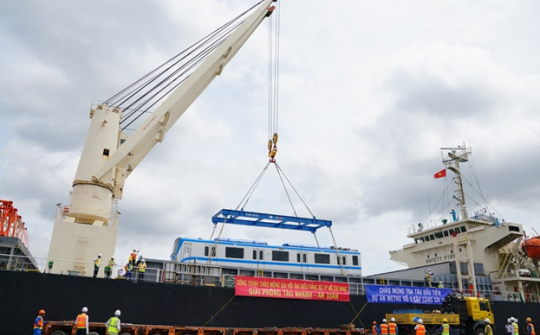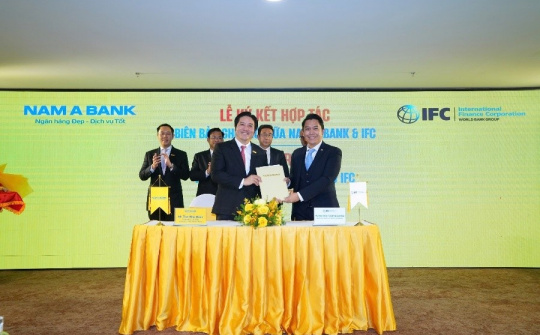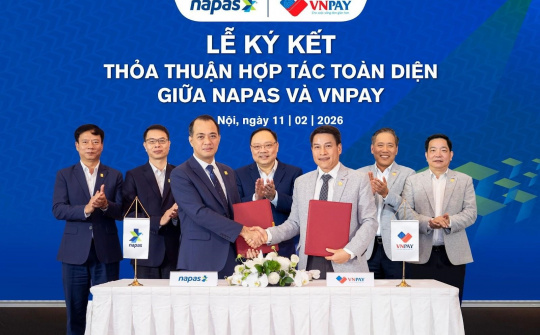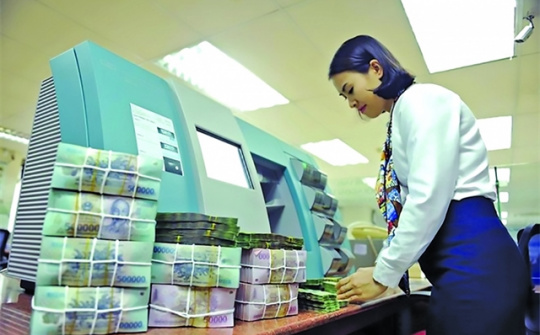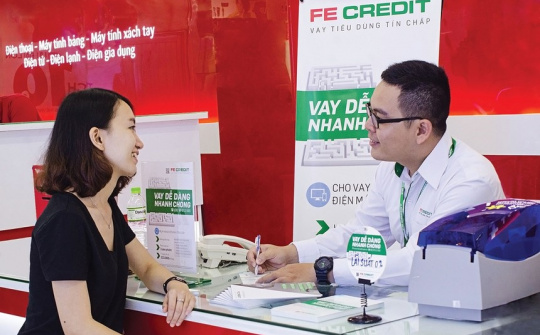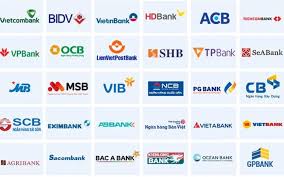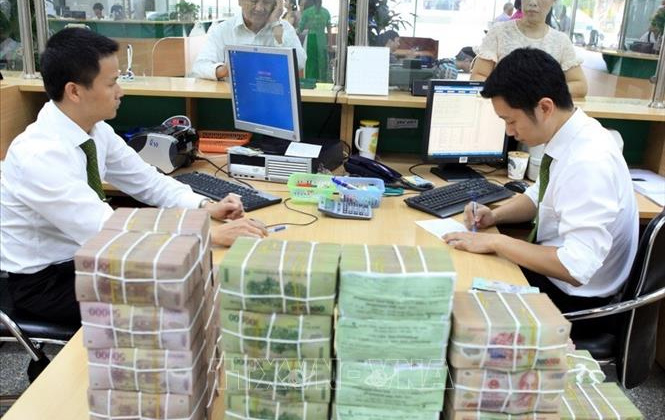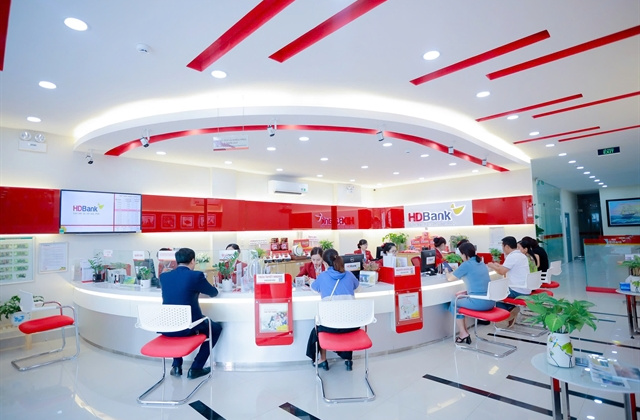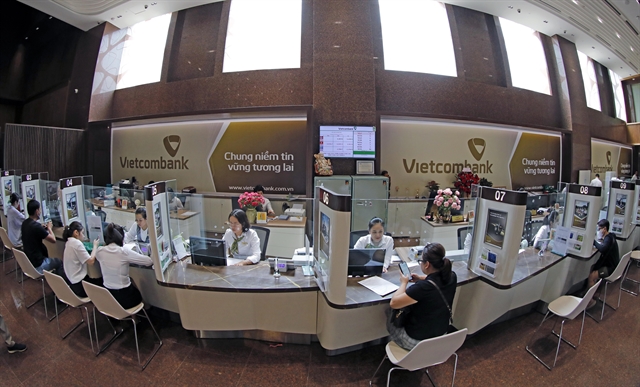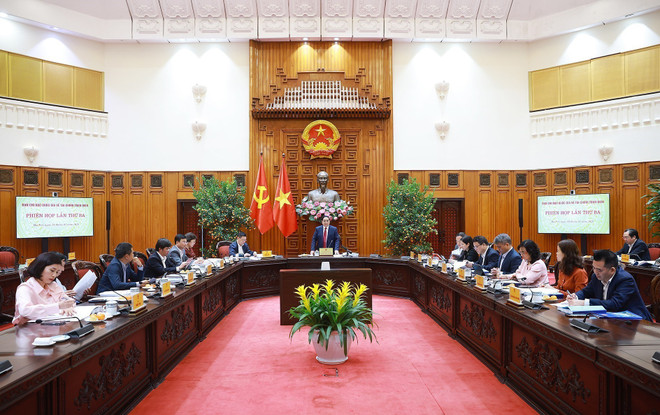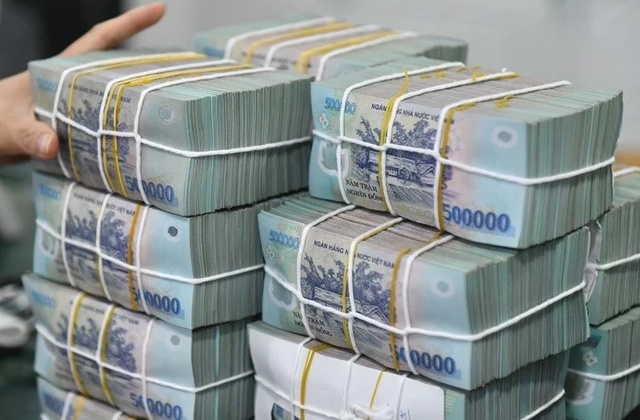The event was co-organized by the State Bank of Vietnam (SBV), the German Agency for International Cooperation (GIZ) and the International Finance Corporation (IFC), under the chairmanship of First Deputy Governor of the SBV, Mr. Dao Minh Tu. Agribank’s participation underscores its strong commitment to supporting the banking sector in achieving sustainable development and green growth objectives.
The Wokshop, themed “Accelerating the Implementation of the Banking sector’s Action plan for the National green growth strategy for 2021-2030” and the Launch of the Handbook on Environmental and Social risk management in Credit Extension Activities, was co-organized by the SBV, GIZ and IFC. The event saw participation from representatives of international organizations, including the KfW Development Bank, the Ministry of Agriculture and Environment, the Ministry of Finance, regional State Banks, commercial banks, and numerous domestic and international experts in green finance and sustainable development.
Paving the Way for National Green Growth through Green Credit
In his opening remarks, First Deputy Governor Dao Minh Tu emphasized that green growth has become an urgent imperative in the face of climate change and environmental degradation. Since 2015, the SBV has been a pioneer in integrating sustainable development goals into banking operations, issuing multiple directives to promote green credit and green banking. In 2023, the SBV introduced a sector-wide Action plan to implement the National green growth strategy for 2021-2030, as well as policies supporting Vietnam’s climate change mitigation efforts. This plan outlines seven comprehensive and synchronized task groups for departments, branches and financial institutions.

SBV First Deputy Governor Dao Minh Tu delivering his speech
Ms. Pham Thi Thanh Tung, Deputy Director General of the SBV’s Credit Department, reported that nearly two years into the implementation of this Action plan, significant progress has been achieved. Awareness of sustainable development requirements has markedly improved. Specifically, 60% of credit institutions have established steering committees for green and digital transformation, incorporated green growth targets into business strategies and actively mobilized resources to finance green sectors; 23 institutions have published sustainability reports. As of March 2025, 58 credit institutions reported outstanding green credit (compared to just 15 in 2017), with an average annual growth rate exceeding 21% between 2017 and 2024, outpacing the general credit growth rate for the economy. Additionally, 57 institutions are now conducting environmental and social risk assessments, with green credit balances reaching VND 3.62 quadrillion, more than 15 times higher than in 2017. A growing number of institutions are publishing independent sustainability reports, enhancing transparency and reinforcing reputational credibility.

Ms. Pham Thi Thanh Tung, Deputy Director General of the SBV’s Credit Department, speaking at the event
Despite these advances, First Deputy Governor Dao Minh Tu acknowledged ongoing challenges in the implementation process. Specifically, many credit institutions have not yet issued reports or engaged in green lending and green credit outcomes remain limited despite significant growth potential. Key obstacles include the lack of a comprehensive legal framework for green asset classification, limited risk assessment tools, long payback periods for green investment projects, unclear financial returns and constraints in mobilizing international green finance resources.
The Deputy Governor also highlighted the increasing demands for governance and the quality of human resources in banking to address environmental, social and climate-related issues in identifying, appraising, managing, and monitoring credit activities, as well as supporting clients in meeting global standards.
Proposing solutions for the future, Dr. Michaela Baur, Country Director of GIZ in Vietnam, emphasized that green classification is a critical factor in directing capital flows toward green growth and enabling Vietnam to access global green finance. GIZ is collaborating with the SBV and relevant ministries to develop a national green classification system, expected to be submitted for government approval in 2025.

Dr. Michaela Baur, Country Director of GIZ in Vietnam
Agribank’s comprehensive green transformation efforts
At the Seminar, Mr. Doan Ngoc Luu, Deputy General Director of Agribank, shared notable achievements and strategic directions in promoting green credit and sustainable development at Agribank. Following the SBV’s issuance of Decision No. 1408/QĐ-NHNN on July 26, 2023, regarding the Banking sector’s Action plan for the National green growth strategy for 2021-2030, Agribank established clear goals, tasks and solutions for implementation across its system. These include refining regulatory frameworks, promoting green credit, managing environmental risks, advancing digital transformation and greening internal operations.
In terms of green credit, Agribank has actively rolled out large-scale credit programs, including a VND 30,000 billion package with interest rates starting at 6.0% per year to finance projects in key industries and green sectors; a VND 50,000 billion package for high-tech and clean agriculture; and a VND 10,000 billion green credit package for individual customers with preferential interest rates starting at 3.5% per year. Agribank is also a key player in implementing a loan program for the production, processing, and consumption of high-quality, low-emission rice in the Mekong Delta, aligning with the Project for sustainable development of One million hectares of high-quality, low-emission rice cultivation linked to green growth in the Mekong Delta by 2030.
“Currently, Agribank’s green loan portfolio has recorded stable and consistent growth. In the first quarter of 2025 alone, Agribank maintained its position as the leading bank in the number of customers receiving green credit, with over 41,600 customers and a total green outstanding loan of nearly VND 29,300 billion. Of this, loans for renewable energy and clean energy reached nearly VND 15,400 billion, accounting for over 52% of the total green credit balance; sustainable forestry loans reached over VND 6,900 billion (nearly 24%); and green agriculture loans amounted to over VND 6,700 billion (over 23%),” said Deputy General Director Doan Ngoc Luu.
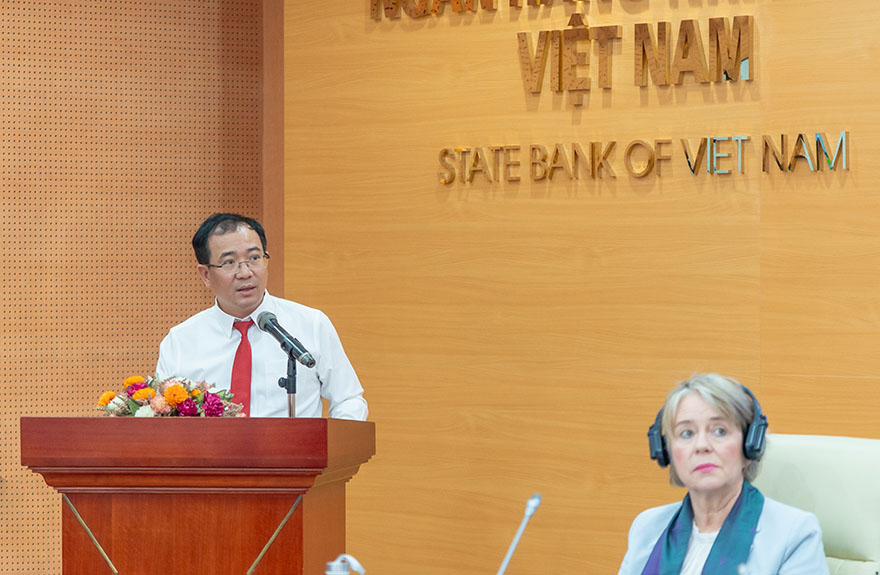
Mr. Doan Ngoc Luu, Deputy General Director of Agribank, speaking at the event
Despite these positive results, Mr. Doan Ngoc Luu candidly highlighted challenges in implementing green transformation and growth initiatives. These include an incomplete legal framework for green credit and green bonds, limited access to international funding and a shortage of personnel with expertise in sustainable finance.
At the event, Agribank proposed that the SBV expedite the development of regulations on environmental and social risk management, establish an environmental database to support credit activities and organize advanced training programs on ESG (Environmental, Social and Governance) standards. Agribank also urged the government to promptly issue environmental criteria and standards for projects eligible for green credit, as well as policies to incentivize sectors meeting green criteria and credit institutions participating in green lending, particularly for medium- and long-term loans.
“Agribank is committed to continuing its collaboration with the banking sector to effectively implement the National green growth strategy for 2021-2030. Moving forward, Agribank will intensify innovation and diversify green financial products and solutions, contributing to building a green and sustainable economy,” affirmed Deputy General Director Doan Ngoc Luu.
During the event, the SBV, in collaboration with IFC, officially launched the Handbook on Environmental and social risk management. Developed based on international best practices, the handbook aims to assist credit institutions in establishing and operating effective environmental and social risk management systems, thereby supporting the adoption of ESG standards and promoting sustainable finance in Vietnam.

Ms. Ha Thu Giang, Director General of the SBV’s Credit Department, speaking at the handbook launch
At the Seminar, the stakeholders reaffirmed their commitment to enhancing cooperation in promoting green and sustainable finance in the banking sector, contributing to the nation’s goals of achieving a green, inclusive and sustainable economy. In the coming period, the SBV will continue to implement specific policies and solutions to guide banking activities toward green growth and climate change adaptation. Additionally, the SBV will strengthen partnerships with domestic and international organizations to mobilize financial and technical resources while enhancing the expertise of personnel in green credit and climate change response.
Agribank News


